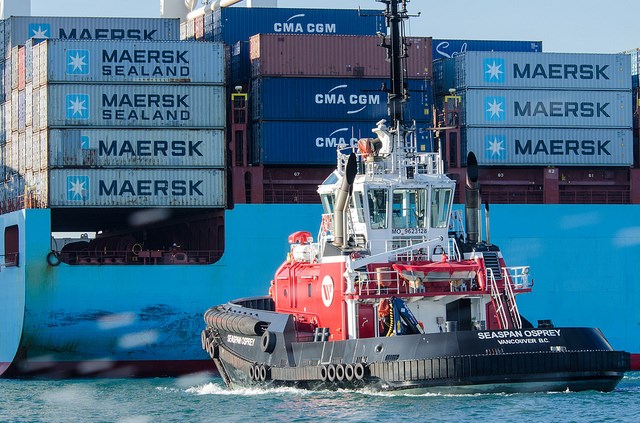Port Metro Vancouver is researching the impact of large ships on whale habitat.
With the support from the University of Victoria’s Ocean Networks Canada and JASCO Applied Sciences, the port has deployed a hydrophone listening station in the Strait of Georgia that will monitor underwater vessel noise, which is a threat to whales.
Last month’s announcement comes as numerous projects are being planned independently of one another that could see a significant spike in large fuel-carrying vessels running up and down the Strait as well as into the Fraser River.
Listening devices will be placed in the Strait’s shipping lane.
Monitoring and understanding sound and its impact on marine mammals is a crucial aspect of good ocean management,” said Kate Moran, President and Chief Executive Officer of Ocean Networks Canada.
Many of British Columbia’s whale populations are endangered, including killer whales and humpbacks.
Noise pollution affects whales’ abilities to communicate, travel and seek food.
With proposals to build an expanded LNG facility in Delta and a coal terminal in Surrey, as well as the jet fuel terminal for Vancouver International Airport in south Richmond, the south arm of the Fraser River alone could see an estimated 460 Panamax-sized tanker runs (230 round trip) per year, where presently there are none.
Environmentalists have long contended the federal government should not be leaving environmental research in the hands of PMV.



